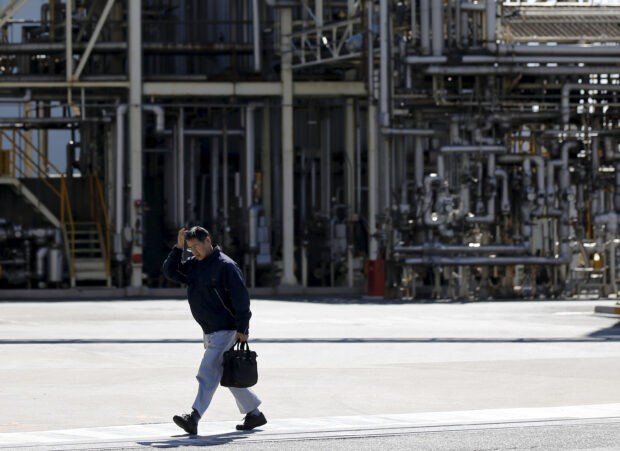Japan union announces hefty wage hikes, presaging shift at BOJ

A worker walks past a factory at the Keihin industrial zone in Kawasaki, Japan Feb 17, 2016. REUTERS/Toru Hanai/file photo
TOKYO — Japan’s annual labor talks with major firms ended up with pay raises of 5.28 percent, the highest in 33 years , the country’s largest union group said on Friday, reinforcing views that the county’s central bank will soon shift away from a decade-long stimulus program.
The bumper outcome comes as the Bank of Japan looks close to ending eight years of negative interest rate policy. BOJ officials have stressed the timing of a pivot would depend on the outcome of this year’s wage negotiations.
Policymakers hope that hefty pay rises will boost household spending and produce more durable growth in the broader economy, which narrowly avoided slipping into recession late last year.
READ: Japanese firms offer biggest pay rise since 2013, union says
Workers at major firms had asked for annual increases of 5.85 percent, topping the 5 percent mark for the first time in 30 years, according to trade union group Rengo.
Highest in 33 years
The union group, which represents about 7 million workers, many at large companies, had set its eyes on more than 3 percent of base pay hikes — a key barometer of wage strength as they determine wage curves that provide the basis of bonuses, severance and pensions.
Analysts had expected a rise of more than 4 percent , which would be the biggest since the early 1990s, after last year’s 3.6 percent , itself a three-decade high.
READ: Japan on cusp of ending its negative interest rates experiment
The government is counting on such wage hikes to trickle down to smaller and medium-sized firms, which account for a whopping 99.7 percent of all enterprises and about 70 percent of the country’s workforce, but many lack the pricing power to pass higher costs on to their customers.
Wage talks for most smaller companies are expected to concluded by the end of March.
Even though Japanese companies have been raising pay, the increases have largely failed to keep up with inflation. Real wages, which are adjusted for inflation, have now fallen for 22 straight months.